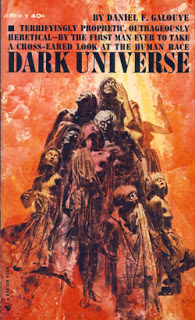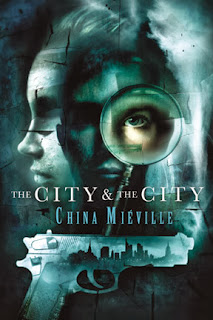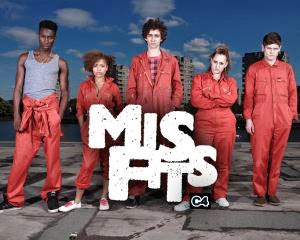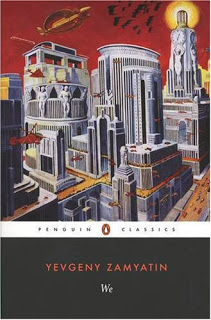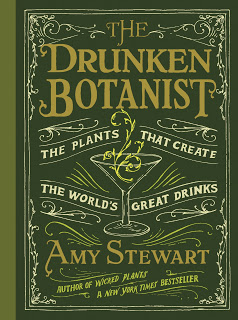
I remember when I was a kid in highschool and wanted so much to experience that amazing feeling books and movies described, the magical bond between man and woman, the thing that makes everything worthwhile and even death irrelevant. So I had the feeling. It was amazing, it was magical, it was everything I expected it to be and more. And yet it all turned out to be an illusion, a manufactured fantasy of my own making that just tumbled down like a castle made of cards. And I always thought that was sort of weird and uncommon, but now I am thinking that maybe all romance is like that.
Could it be that love is something we are programmed to need to feel and we are just doing all is necessary in order to have the feeling into a familiar and comforting setting? All other sensations and feelings and needs are accounted for: you are happy because something good happened, you are hungry because you haven't eaten, you are disgusted because someone did something, you want to belong because we are a social species, but
love is something that doesn't make a lot of sense, it's just there. It also feels too personal to assign it under "a species thing", even if its ultimate purpose is just that. So, in order to justify it, you need an origin story, just like any good comic book hero.Thus the myth is born, perpetuated, kept alive as long as you have the feeling. And when you break a relationship up, again there are these justifications, stuff that just appears out of thin air and one or both of the people involved are always shocked, because they weren't there five minutes ago, when people were in love. "You killed my parents!" "You threw me in acid!" and so on. I don't want to stretch the superhero thing too much, though. Alternatively, think back and try to imagine all of your relationships as movies in the Kick Ass franchise. :)
So this is how I am seeing this: you meet this other person, you develop feelings of affection (or maybe just carnal lust, I don't care) and your brain starts churning up this script in the background. Once the script is ready, the focus group enjoyed it, the producers secured the financing, you already have the cast and bang! you have a blockbuster movie you call love. Until then it was just... less, "simple" affection or enjoyment, but with the origin story it becomes the superfeeling, capable of incredible feats, worthy of songs and tales.
As an argument for this vision I bring the terrible reluctance of people to dispel the magical script of their love affair. When the mystery of their feelings is laid bare they feel they have lost something. When outsiders are trying to look at it logically or to deconstruct the story they meet with fanatical resistance. After all, if you are an artist, making your own movie and starring in it, you really hate critics.
And when you are in a long relationship, one that spans more than the fabled three years, you continue to have the feelings, now intertwined with practical issues like who gets the car, who walks the dog, but they don't look so great because the love movie, as cool as it was, is old. You remember those times, maybe share them with your friends, just like remembering a good movie (made even better in your head by the bad parts you chose to conveniently forget) and your friends' reactions are just like for a movie, either sharing their own or criticizing yours or agreeing it was cool, maybe even getting the old "they don't make them like they used to" speech.
Of course, in order to definitively prove such a thesis, one must delve into the idea of what is real and what is not. That's a can of worms I am not opening. And believing every love story is a fantasy that covers up more mundane things and in which everyone involved participates willingly doesn't diminish its power. You can enjoy a movie even when you know it's not real, especially because you know it's not real. I also have to say something about the nature of control in a love situation. It's not clear to me, yet, but the gist of it is that this is why people do enjoy playing romantic games of seduction and betrayal, but ultimately dismiss the practice as not serious. It's the same kind of behaviour one sees in parents that scoff at their children's games, but watch TV all day. The thing is in a story you don't have control. It becomes more and more powerful the more the characters can say it all happened to them, rather than being something they planned. Somehow having control in a romantic relationship is frowned upon and having a good story on why losing control was a good thing is a form of art.
I'll end with a fragment of a movie I really liked, one that you probably don't associate with romance:
The Name of the Rose. There was this scene where a girl, dirty and inarticulate, scavenging in the castle's garbage, meets our young protagonist interpreted by Christian Slater and just humps him like there is no tomorrow, groaning and moaning like a wild animal for the whole five minutes; then she leaves. Later on, when people are trying to burn her as a witch, the boy saves her. At the time I found that very romantic, even if they didn't even share a word. Maybe it's the fact that he gets to save her in the end, but most likely it's Slater's performance of looking at the girl with a longing and very confused gaze, the "what the hell is happening to me?" look that betrays the background script writing in the back of his skull.
 There are situations where a program would display an error of the type "Libeay32.dll Not Found" or "This application failed to start because libeay32.dll was not found. Re-installing the application may fix this problem." I had this problem with SpeedFan, for example, which would display this error on startup, but then start without a hitch after closing the popup. There are a lot of solutions on the net, but the safest and quickest (for Speedfan and probably most other programs) is to do the following:
There are situations where a program would display an error of the type "Libeay32.dll Not Found" or "This application failed to start because libeay32.dll was not found. Re-installing the application may fix this problem." I had this problem with SpeedFan, for example, which would display this error on startup, but then start without a hitch after closing the popup. There are a lot of solutions on the net, but the safest and quickest (for Speedfan and probably most other programs) is to do the following: